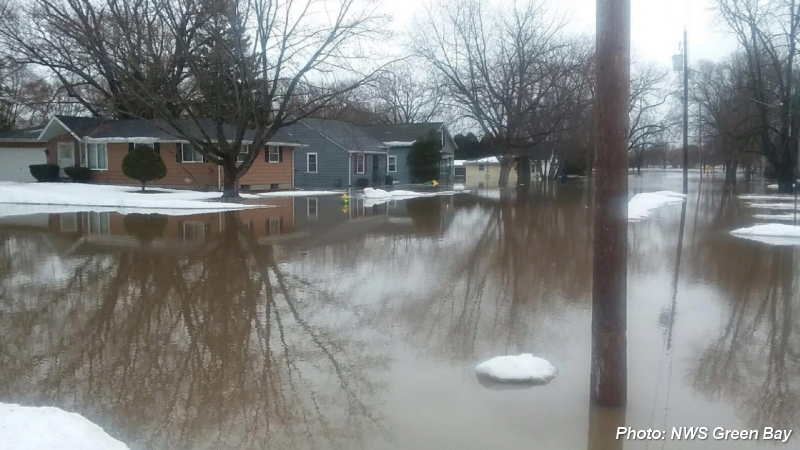Flood waters are finally receding in southeastern Wisconsin, but dangers remain. We hear how officials are recommending to stay safe as people start the recovery process.Treating those with opioid addiction and reversing the growing trend of overdose deaths has been a key issue in Wisconsin for several years. We discuss how the new health care bill could affect opioid treatment initiatives. Plus, details on a worker’s union criticizing low staffing at Wisconsin’s King Veterans Home.
Featured in this Show
-
What The GOP Health Care Bill Means For The Opioid Crisis
Senate Democrats and Republicans have both raised concerns about what the new GOP health care bill could mean for the national opioid epidemic. We talk to an addiction psychiatrist about whether the bill would help or hurt people suffering from opiate addiction.
-
State Agencies Advise Caution After Flood Waters Recede
Governor Walker declared a state of emergency last week in Kenosha, Racine and Walworth Counties after torrential rains caused widespread flooding. As the waters begin to recede, we talk to a state Department of Health Services official about the health and safety hazards that remain.
-
As Flood Waters Recede, Health And Safety Hazards Remain
After torrential rains hit southeastern Wisconsin and caused widespread flooding last week, flood waters are receding, but clean-up efforts are just getting started.
The downpour flooded parts of Wisconsin with almost 8 inches of rain last Tuesday into last Wednesday, and caused road closures and power outages. It ultimately led to Gov. Scott Walker declaring a state of emergency and calling the Wisconsin National Guard to assist residents in the Racine, Kenosha and Walworth counties.
As water levels begin to go down, the state Department of Health Services has advised people to be aware of various health and safety hazards. Jeff Phillips, the director of the agency’s Bureau of Environmental and Occupation Health, said residents should be aware of the contamination flood waters can bring to food and water.
“We want to make sure that people are thinking about food safety and getting rid of things that looked like they have been damaged or contaminated. In places where we have lost power, (make) sure that anything that would need to be refrigerated is just discarded,” he said.
For people living in areas where wells were submerged underwater, DHS advises testing well water for coliform bacteria. Phillips said people can easily get a testing kit from local health departments.
The most recent rainfall also caused some damage to infrastructure, such as power lines, and Phillips said electrical experts are inspecting electrical supply systems, but residents should also be cautious around appliances in their homes.
“We want to make sure that as people are trying to re-enter their homes, they’ve got their electronic stove and refrigerators and those kinds of appliances checked. We want to make sure that their furnaces and air conditioning units, all of those things that could potentially cause safety hazards … have been looked at (and) inspected.”
One of the most common issues that arises from flooding is mold. Phillips said people with dry wall in their basements will be particularly susceptible to mold growth. He advised being conscious of a musty smell, because not all mold is visible.
“It doesn’t take much moisture to actually allow mold growth. We’ve seen situations in past flooding events where a little bit of moisture on the cardboard on the backside of drywall is enough to let mold grow through and onto the interior side of it,” he said.
DHS also advised using a professional cleaning service with flood clean up experience.
Flooding is not uncommon across Wisconsin. Last year, flooding in the northern part of the state hit record high levels. Phillips said the best way people can protect themselves from future flooding is by having a game plan in advance and being familiar with community resources.
“The biggest thing is really … being knowledgeable about your environmental surroundings where you live,” Phillips said. “Knowing that if you live in an area that tends to be flooded, have a plan in place (so you know) where you’re going to go and who you’re going to contact.”
As of 1 p.m. Tuesday, the water level of the Fox River at Burlington was a bit above 10 feet and expected to continue receding, according to the National Weather Service. The flood stage at the Fox River in Burlington is 11 feet and the river crested at around 16 feet last Wednesday, according to NWS.
Episode Credits
- Rob Ferrett Host
- Haleema Shah Producer
- Dr. Mike Miller Guest
- Jeffrey Phillips Guest
Wisconsin Public Radio, © Copyright 2024, Board of Regents of the University of Wisconsin System and Wisconsin Educational Communications Board.


